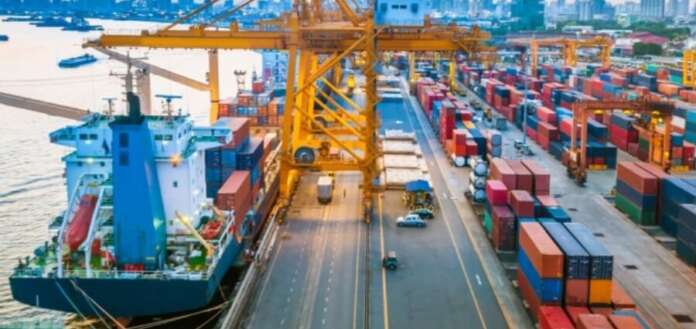Black Friday kicks off the holiday shopping season hot on the heels of Hanukkah and Christmas. To date, these have been exciting times – not just for buyers looking for great discounted gifts, but for retailers depending on these purchasing patterns to meet annual budgets. But unfortunately, Corona and other issues have turned the entire supply chain on its head. As a result, pressure is high, and retailers tell shoppers to start their gift buying right now if they haven’t already.
What are the obstacles?
Numerous factors complicate the 2021 gift-giving season, and it’s certainly not from a lack of buying strength and demand. On the contrary, demand is so strong that ports cannot absorb all the cargo into the US domestic supply chain.
Thanks to platforms like eezyimport, many US importers have filed their ISF filing ISF (10+2) form, CBP form 7501, and met other requirements, and sailed through customs clearance. This part of the import process is essential because although they still await their merchandise, it would be a blow to face more delays due to a paperwork error or late filing when finally receiving their goods.
However, they have faced higher shipping costs and delays, which means fewer discounts, less inventory to display, and dissatisfied customers. Where are their goods? Firstly, they’re stuck in clogged ports struggling to keep up with imports.
CBS News reported that Los Angeles Port, which handles 40 percent of US imports, especially China, faces a record backlog. There are 70 cargo ships delayed at ports carrying everything from electronics to furniture to toys.
In September, the New York and New Jersey Port Authority announced that it had moved 780,782 TEUs (20-foot equivalent units) in August 2021. Overall, seaport cargo volumes continue at a record high cargo activity for the 13th consecutive month. At the same time, August 2021 became the third busiest month in the port’s history. Cargo volume was up 14.9 percent from August 2019 and increased 2.9 percent from July 2021.
Docked; then what?
If and when their goods make it to land, importers cannot deliver them due to massive labor and truck shortages. Combined with a lack of space in warehouses and rail yards, around 250,000 containers of goods are sitting on the docks in LA. Delayed pickups are also causing dozens of ships to back up at anchor outside the port.
Some importers thought they could avoid the circus and use the US Postal Service. However, they were in for a surprise when the service braced for mass holiday shipping volumes by raising fees and slowing first-class mail delivery as of October 1.
Two of the country’s largest retailers, Home Depot and Walmart, have resorted to chartering private ships to retrieve their goods. Amazon is increasing its fleet of freight planes. Urban Outfitters has swapped ocean transport to air to try to bypass the congested ports. Other brands are revising plans to avoid the turmoil: Book publishers, plagued by paper shortages and shipping setbacks, are moving fall book releases into early 2022. Everyone is seeking alternative options to ensure on-time delivery.
Limited inventories
All the above factors come down to limited inventories. Faced with less enticing goods, shoppers not ready to compromise may spend less, walloping retailers. In addition, the issues have forced manufacturers to reconsider what type of goods are economically viable to move. For instance, oversized low-value bulky items with less value (e.g., inexpensive furniture, toy trucks, giant stuffed animals) take up more container space than nifty cell phones, small tech gadgets, and little squishy toys for toddlers.
Scott Price, UPS global president, told AFP wire service that shoppers should buy their gifts now. Otherwise, they might face shelves with just a picture of something that’s not coming until February or March.
But the issue of However, with limited inventories, extended shipping times, labor deficiencies, and fewer discounts, US retailers are not laughing!




